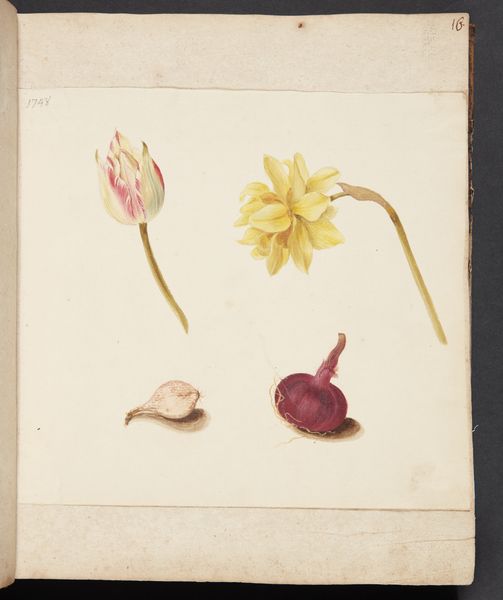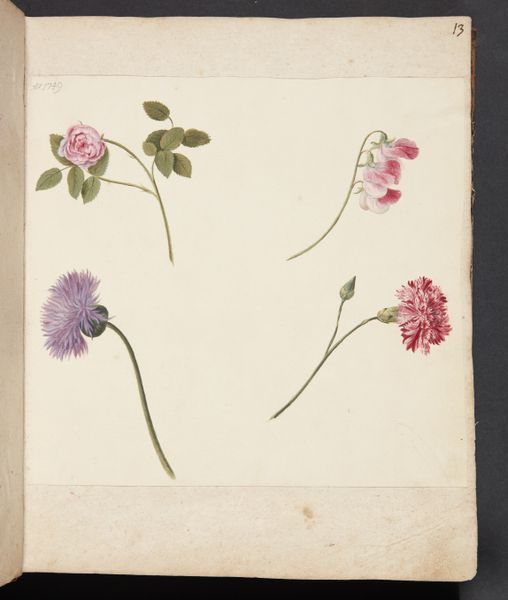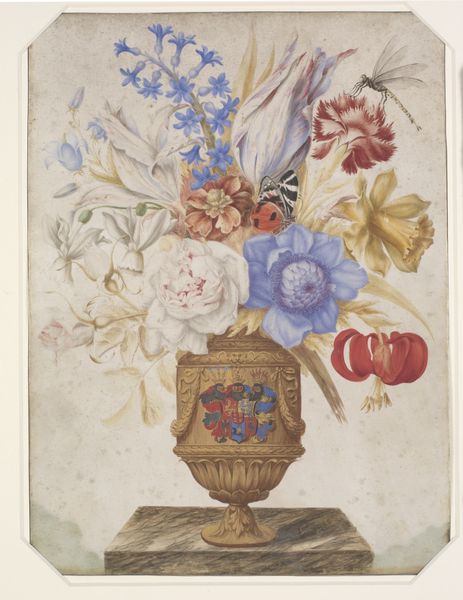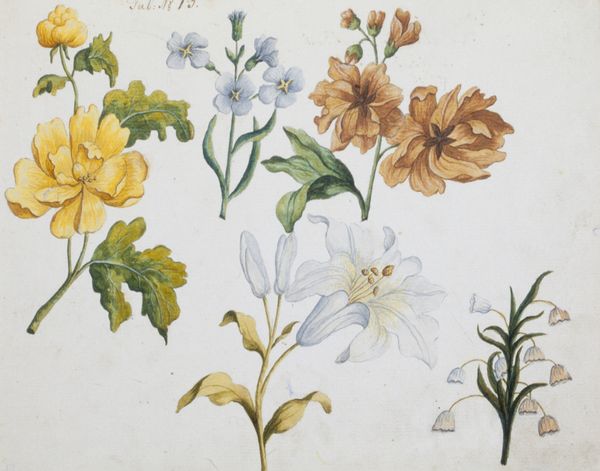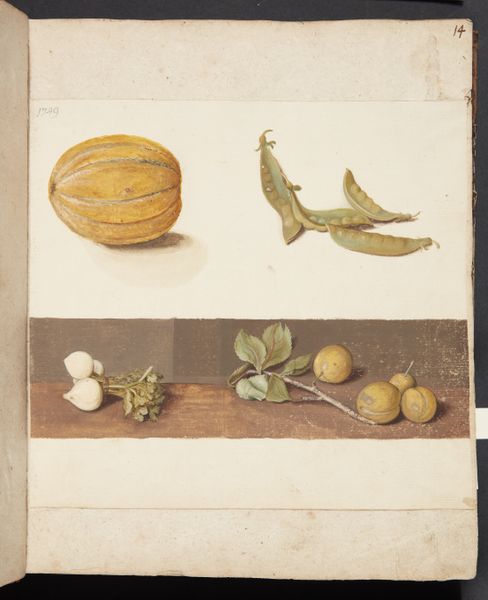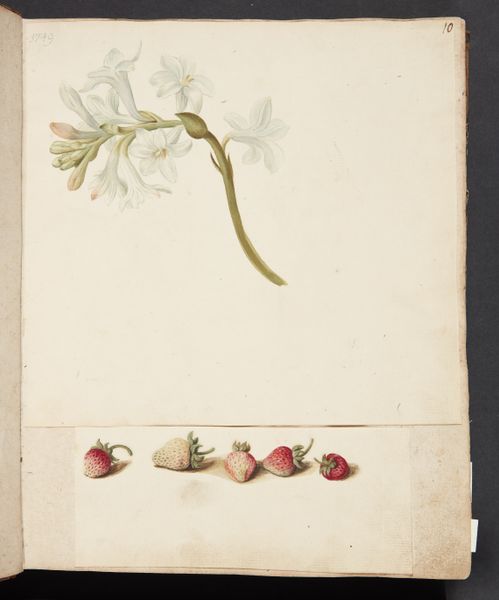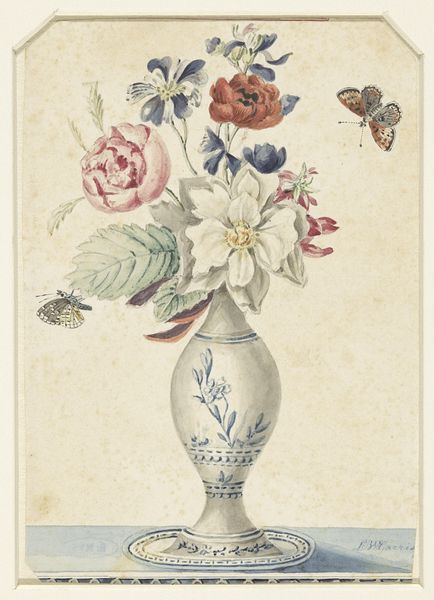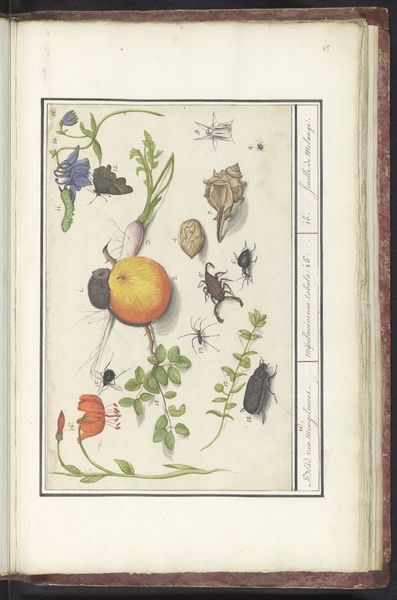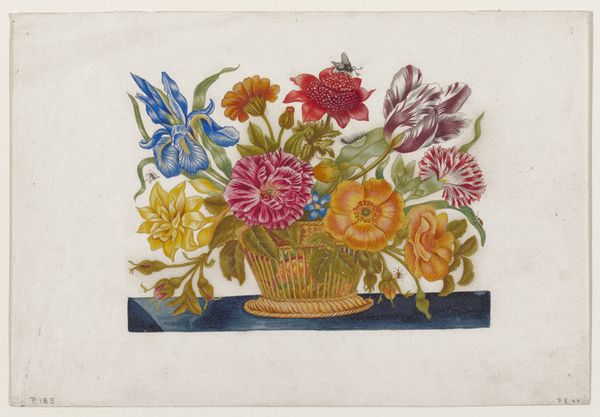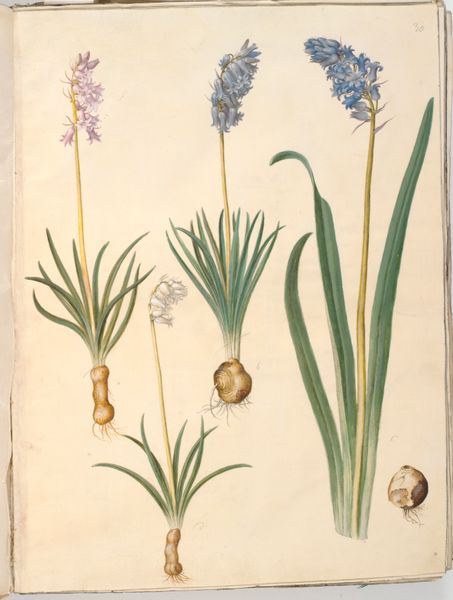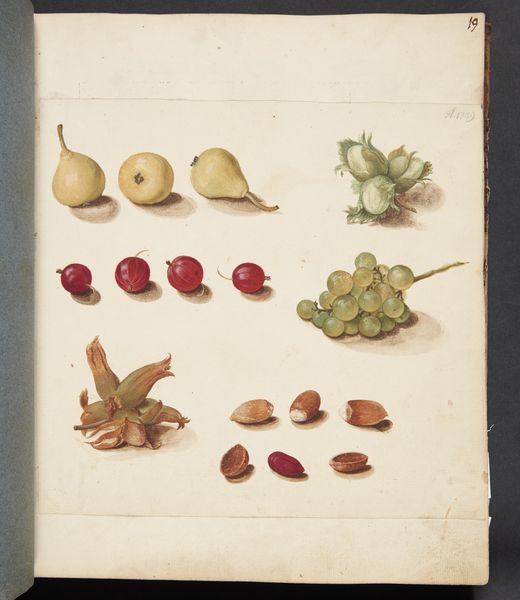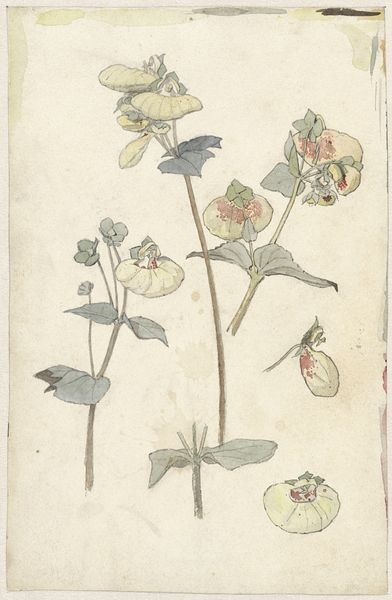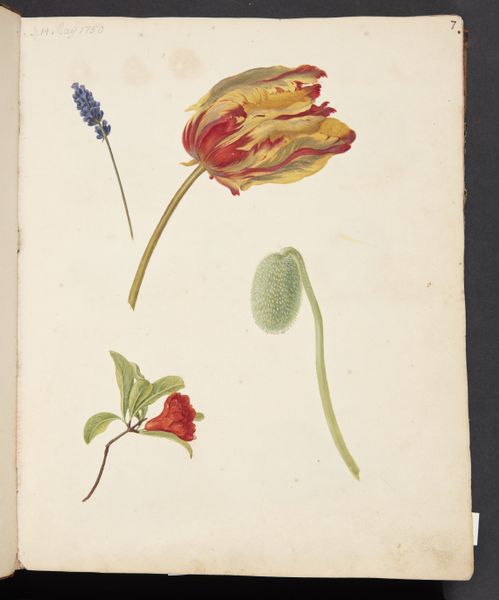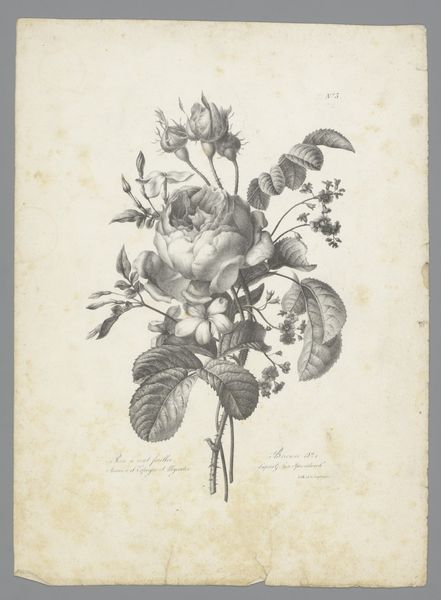
drawing, coloured-pencil, gouache
#
drawing
#
coloured-pencil
#
gouache
#
landscape
#
coloured pencil
#
academic-art
Dimensions: 281 mm (height) x 227 mm (width) (bladmaal)
Editor: This is "Study of Flowers, Fruits and Green Tomatoes" by Johanna Fosie, created in 1748. It's a colourful drawing with coloured pencil and gouache. There's a really interesting juxtaposition of delicacy and almost scientific observation. What do you see in this piece from a formalist perspective? Curator: I observe that Fosie has orchestrated a structured array of botanical subjects. The composition is not casual; each bloom and fruit segment is methodically placed on the page, delineating a clear figure-ground relationship within the discrete rectangles. Consider how the artist used light and shadow. Do you notice how, despite the varied textures, Fosie employs a consistent soft light, unifying the subjects and suggesting a controlled studio setting? Editor: Yes, there's definitely a considered quality to it. I wonder if the sharp edges of each section emphasize their separateness, disrupting the sense of natural growth? Curator: Precisely. This could signify a formal intent to classify, even dissect, rather than to emulate the chaotic vitality of nature. Observe, also, how Fosie utilizes the medium of gouache to achieve opacity, almost a flattening of perspective, contrasting with the detailed pencil work on the hyacinth. It brings into question the work's engagement with visual depth. How does the materiality itself contribute to its overall structure? Editor: That's fascinating. I was so focused on the natural subjects I didn't see the structure holding everything together. Curator: Exactly! Through meticulous arrangement and an interesting contrast of texture and light, the study reveals itself to be a statement on representation itself. By analyzing the tangible properties, it permits new ways of observing historical artwork and cultural conventions.
Comments
No comments
Be the first to comment and join the conversation on the ultimate creative platform.
